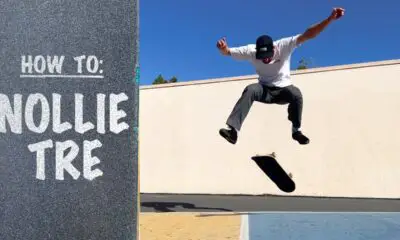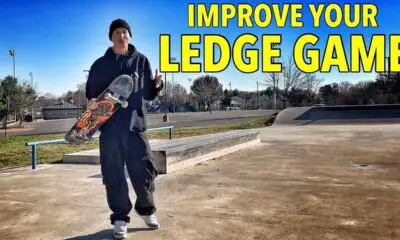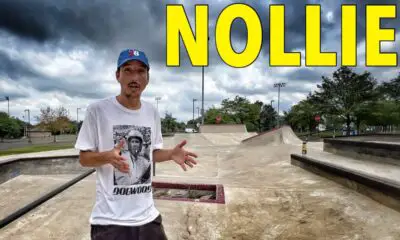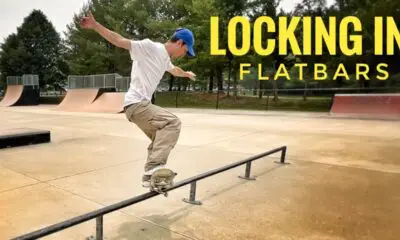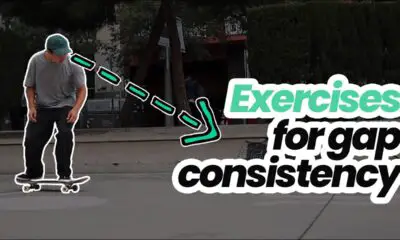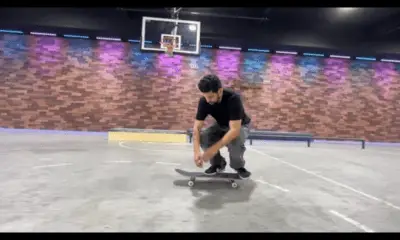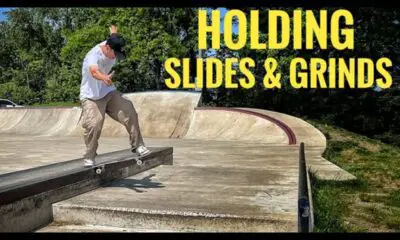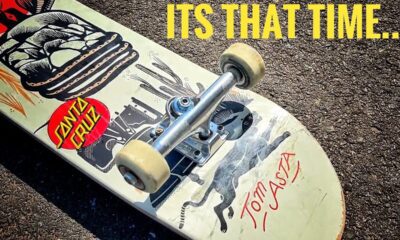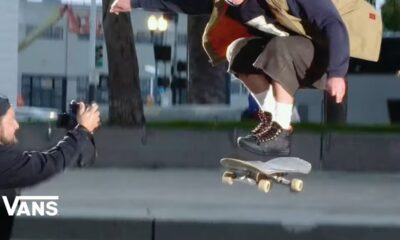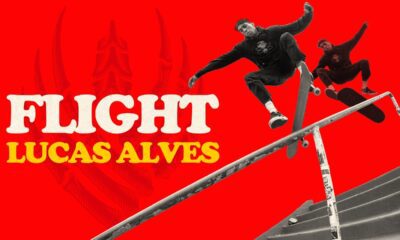INTERVIEWS
Skateshop Spotlight: Fargo Skatepark and Skate Shop, DeKalb IL
The story of Fargo Indoor Skatepark and Skate Shop encourages us to keep grinding. In a candid interview, owner Ariel Ries opened up about the shop’s colorful history, how she works to make skateboarding accessible for everyone, and the importance of getting support when you need it.


First let’s get your origin story. Can you give us the rundown of how Fargo Skateshop came to be?
Oh wow, there’s such a long backstory, but I’ll try to paraphrase it. So, me and my boyfriend at the time started the skateshop in 2007. It was called Small Town Skateshop. It was a skateshop in downtown DeKalb, Illinois, really close to NIU (Northern Illinois University) campus. I was going to college; I was a junior studying marketing. And then I’d say about 5 years into it, we broke up. I bought the business from him, and also started renting privately in the Fargo Theater. It was just like a private indoor park for me and my friends. Everybody had a key and we split the rent. We just kinda did it DIY style. Anytime there was free wood or a free ramp we’d go get it and break it down. One time, there was an indoor skatepark about an hour away from us called Krush. It went out of business and we got a third of the wood which really helped us build the ramps. That helped us really get off the ground.


The original Fargo Theater
And then one year or two years into having the private park, I could barely keep it going. Being seasonal and people not paying the rent during the summer, I had to cover it. It was rough, you know, so I looked into what resources were available for me. I was like, “There’s gotta be someone who can help me out or at least give me some advice.” And then I found the SBDC (Small Business Development Center). They have them in every state and it’s a free service for small businesses. I looked that up and sent an email. Immediately a woman named Sybill called me. She came out to see the skateshop and I was like, “So I also have this thing that I do on the side. It’s just an indoor spot for me and my friends.” It was just down the street from the shop, so we got into her car and drove down here. And she walked in — she’s like in her 60s, okay? Just to give you some context — and she’s like, “Um? You’re gonna open this to the public.”
And I’m like, “No way. I wish! But I’d have to be like a millionaire!” That place was falling apart. It’s a theater that was built in 1929. It was very dirty, no lights, it was used for dry storage for the last 30 years, so it was just boxes and storage. So Sybill helped me write a business plan, present my idea to a group of investors, and I ended up winning this grant that was for a business advisor. And this business advisor helped me work out a deal with my landlord where my landlord would pay for the renovations for the building, but I’d pay a higher rent over seven years. We had to get different zoning for the building. That took awhile, and we had to bring the building up to code and that took a long time. Finally, we opened to the public.


I moved my skateshop to be as close to the skatepark as possible so you could walk through the skateshop and then walk a little bit outside to get into the park. We did that in about 2015. I moved the skateshop here in 2016 and the skatepark opened to the public. Just this year we moved the skateshop again, so yeah, this is our 3rd location for the skate shop.
When we first moved the building to the second location, there was a dance studio in what was an old lobby to the theater. The dance studio left to find their own building, so we could finally renovate and move the skateshop into the lobby of the theater. Now our skateshop is in this really beautiful lobby. There’s like marble walls and moulding on the top by the ceiling. It’s really ornate — it has like birds and fruit and stuff. And the original tile floor is from 1929 with the little tiny tiles that were all laid by hand. It’s like the most beautiful place ever. So now we’re in this new space and you can walk right through the shop to get to the skatepark.
Basically it’s a dream come true, but it took a lot of work.
And I see you put a lot into making the park an inclusive space for a lot of different kinds of skaters. Can you talk a little about that?
Oh yeah, definitely. As a woman skateboarding — I’m sure a lot of women or girls can relate — you want to try skateboarding and you might go to a really busy skatepark and see that it’s majority male based. It can be a little intimidating to get in your own zone and do your own thing and not feel like someone’s watching you, you know? It can be kind of a barrier when you’re feeling that, but the reality of it is that really not many people are watching you. They’re doing their own thing. But in your mind, you might have a lot of reserve because you feel like you’re being watched. I’ve felt that feeling before, so I can relate, even though the more I skate, the more places I go, it’s just me in my own head. But a lot of people still feel like that.
But sometimes being inclusive means being exclusive for a minute.
So we make times for all kinds, all types of people to come together. Like, we have a time just for beginners. We make sure that as a beginner, you have space. You can use the park in your own way, and in those beginner times we skate with you to help you learn. It’s not age-based or anything; it’s based on skill. We have beginners of all ages that come to that.


A recent beginner skate crowd
And we also have a ladies only night on the second Sunday of the month. I kick the boys out and I do get some pushback like, “Oh skateboarding’s for everybody.” It’s like, “Yeah I know, but…”
But sometimes being inclusive means being exclusive for a minute.
It really does! So I have to put my foot down and make it like that. I’ve definitely gotten hate for that. But like, okay whatever. I’ve had girls and women tell me that was the most important thing for them to get started and keep going. That it was the best time for them and everyone who’s been skating on ladies night is so thankful for it. I’ve made some of my best skate friends there and it’s just so special.
We also have a 30 and older skate time for people over 30 to get together. I think that’s a very important time because there is a big increase in skateboarders who are older than 30. People getting back into it, or into it for the first time. It’s like its own little community. I’m sure you’ve heard of the Old Dude Skater Crew (ODSC). They’re all over. It’s a very specific demographic of dudes who are super into it and it’s really cool to help them connect with each other.
We’ve had LGBTQ night and it was really successful at first, then not so successful. But, you know, I’ll try to bring that back if I have more inquiries about it. Yeah, we try to make a time for everybody.
Okay so let’s switch gears and talk about the shop aspect of it. What are some of your favorite products that you’re carrying right now?
I try to support the local companies a lot. There’s a few brands that are locally made. One’s Caravan Skateboards, we got Pardon My Thrashing, Character Skateboards, Losing, and Derangement Lab. These five companies that are all locally made, I try to do my best to support them.
And then of course the staples like anything from Deluxe. Hockey is one of our bestselling brands. If you skate them, they’re a different shape. For me, I started skating on that board and I like it. It’s really nice. Those brands, they sell good, but I do try to support the local, too.
Speaking of local stuff, do you participate in any local events? Do you have any coming up?
Oh my gosh, do we! Yeah, we just started two years ago (obviously last year we could do it). We started a popup market just for local brands. It’s called Made in the Midwest. It’s a popup market and a skateboard contest. So we basically provide booths for 20 local companies and local artists. They provide contest prizes and then everybody who comes and participates wins prizes from those brands. And also cash! So it’s a really good way to support our local brands, skaters, and artists. That’s on Small Business Saturday, which is November 27th.


And since we moved into our new space, we have a 1500 square foot space that we call The Venue. We use The Venue for all kinds of things from art shows to live music to workshops. So we’re constantly trying to support local artists and musicians. People who want to do anything they want to do in that space. And then we’ll have a lot of workshops coming up for Christmastime to make stuff for presents. We’ll have a printmaking workshop, a jewelry making workshop. I make jewelry out of broken skateboards. People can come and make, like, a ring for someone you love for Christmas.
Have you had any special visitors or fun stories you’d like to share with us?
Just lately. I’m so excited. We’ve been starting to get more influential skaters here. It took years to get recognized. When I first opened the park, I’d say our ramps were not the best. We were trying to build them all in house, and we still do, but we learned a lot. I went to a friend of mine who I really respect in the skateboarding industry and said, “Hey, how do I get more pros to come to my park? What do I have to do? Who should I talk to?” And he said, “You know what, just build something so undeniable they come to you.” That hit me hard because, number one, it felt like he was saying my park wasn’t good enough, so that kind of hurt. But at the same time, it was motivation like, “Okay, I hear you.” So I took that advice and I just poured myself into this park and the skateshop and tried to build it to be the best it can be. Make it a place that people would consider a destination.
So just this year we’ve been getting local pro skaters. Chaz Ortiz — he lives in Chicago, but he’s been coming a lot lately. It’s wonderful to know he thinks it’s such a great park he will come from the city to come skate it. Also in the spring, we had Steve Berra come with the Cariuma team. I’ve had Skategoat here, Mamaskate, Becker Dunn, Tyler Peterson… All these amazing skaters come here and do a demo and come skate with us, so that’s really exciting that finally happened this year.
Let’s wrap this up with your words of encouragement for beginner skaters.
As soon as you say “I can’t do that,” you’re closing a door. So you need to say, “I can do that with practice and with help.” We’re here to help you.
I’d say the number one most important thing for beginners is to have fun. I always try to go back to that. Always have fun. Don’t compare yourself to anybody else or any other skater, no matter what their age is or anything. Only compare yourself to your own self. So think about your first day of skating versus now. Even if it’s just a little bit better than it was, that is a huge accomplishment. You have to celebrate the little wins. Celebrate the little accomplishments because they all add up. We say attitude is huge, so whether you say you can or you can’t, you’re right. As soon as you say “I can’t do that,” you’re closing a door. So you need to say, “I can do that with practice and with help.” We’re here to help you.
Really, the only reason we’ve been able to get this far is the people that work here and the people that support Fargo. I’m just so thankful for my employees and my team and everybody. #thankyouskateboarding


Visit Fargo Indoor Skatepark and Skate Shop at 641 E Lincoln Highway in DeKalb, IL or online at fargoskateboarding.com or Facebook and Instagram.
INTERVIEWS
Pocket Skate Mag Features Daniel Ledermann in ‘Followed’
Pocket Skate Mag crew went with Daniel Ledermann in his chosen home of Innsbruck, Austria in this episode of “Followed“.
They began their day with a short hike in the Alps and then visited his apartment before hitting the streets to watch Dani get clips both in front and behind the lens of his own setup.
INTERVIEWS
How to Make it in Skateboarding? Your Fave Pros Got Some Answers
Chris Joslin, Felipe Gustavo, Mariah Duran, Matt Berger, Ryan Decenzo, and Giovanni Vianna discuss the dominance of Brazilian skateboarders, the forces that drive progression, and more in “Unfiltered.”
“Unfiltered” is a debut content series that offers an unedited glimpse into the minds of the world’s most prominent action sports stars. This roundtable conversation covers a range of topics, including the sport’s evolution, how to handle competition nerves, the impact of social media, and much more.
The first collection features nine episodes, with additional episodes, athletes, and topics scheduled for release this fall. Every Friday, new episodes are released on the X Games YouTube channel.
INTERVIEWS
‘Cold Call’ Presents Andy Anderson
In this episode of Thrasher’s “Cold Call“, Andy Anderson explores Venice’s iconic spots channeling inspiration from legends Natas, TA, and Rodney before unleashing his own freestyle prowess.
-

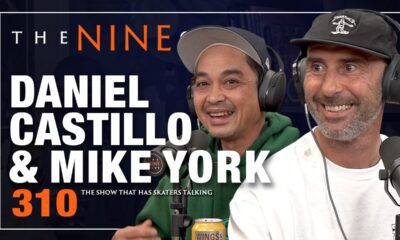

 PODCASTS6 months ago
PODCASTS6 months agoMike York & Daniel Castillo on The Nine Club
-

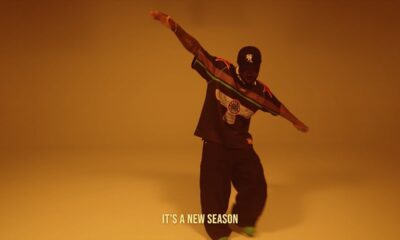

 CONTESTS6 months ago
CONTESTS6 months agoThe 2024 SLS Tour: Bigger and Better
-


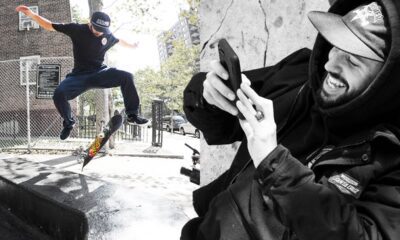


 VIDEOS5 months ago
VIDEOS5 months agoKevin Braun Shares His Favorite Skateboarding Spots
-

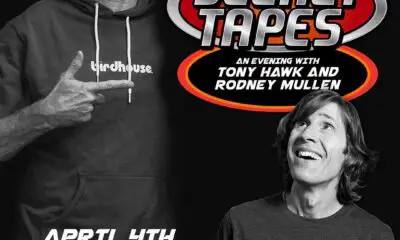

 News6 months ago
News6 months agoTony Hawk and Rodney Mullen Team Up for ‘Darkslides & Secret Tapes’
-


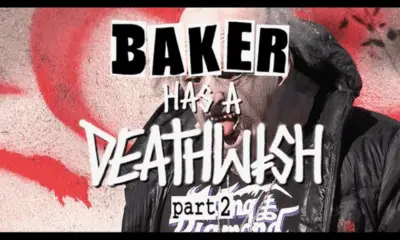


 VIDEOS5 months ago
VIDEOS5 months agoBaker Has a Death Wish Part 2
-

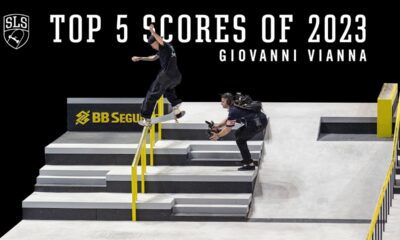

 CONTESTS6 months ago
CONTESTS6 months agoGiovanni Vianna’s Top 5 SLS Scores of 2023
-

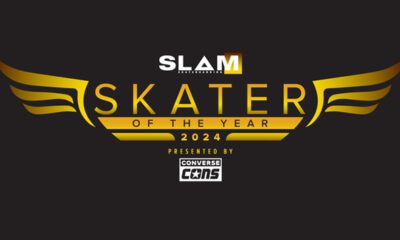

 News6 months ago
News6 months agoHayley Wilson is Slam’s Skater of the Year
-


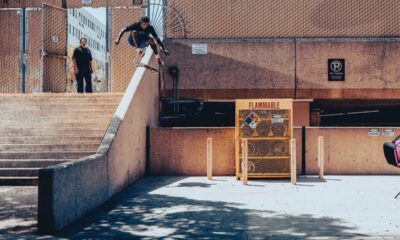


 VIDEOS6 months ago
VIDEOS6 months agoRough Cut: Ishod Wair’s ‘Spitfire’ Part


